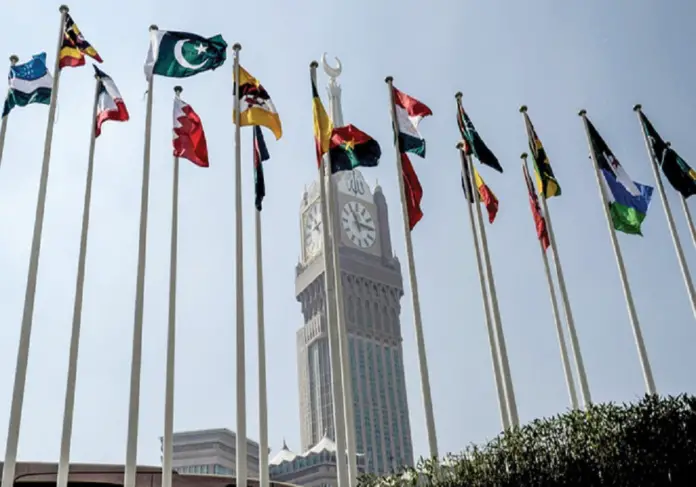Having allies by your side is essential to survive in the competitive global community. The more allies you have in your squad, the more powerful your narrative is. But in this interest-oriented environment, allies are not available for free, they have a price.
Ever since Pakistan was created, it has had enemies as well as friends. Since Pakistan was created in the name of Islam, it has been enjoying support from various Muslim countries. Good relations with non-Muslim countries and brotherly relations with Muslim countries was the core of our foreign policy.
That was the time when it was considered to be the national duty of Pakistan to fight for every Muslim country. For Kashmir, it fought three wars with India despite knowing the fact that it was three times bigger with considerably more equipment and personnel. For Palestine, it participated in the Arab-Israel wars. Together with Arab forces, Pakistani volunteers downed numerous Israeli fighter jets.
So, why did we have the nerve to go to these oppressed countries and fight for them? How did we have the courage to fight against giants like India and Israel despite knowing they are not a piece of cake? How come we were willing to risk offending superpowers like the US, Russia, Europe, etc?
It was because Pakistan was confident that the other Muslim countries had its back. Back in the 60s, Muslim countries were not blatantly interest-oriented. Yes, there were issues between the Shia and Wahhabi blocks, but not strong enough to keep them blind from ongoing oppression in Kashmir and Palestine. There might be differences between Iran and Gulf, but all Muslim countries agreed that Israel is an oppressor and there can never be any kind of alliance with it.
Back in the 60s, Gulf was focused on being the leader of the Muslim Ummah. It was looking out for oppressed countries. It was aiding the Muslim countries facing financial problems. Every country in the Gulf whether the UAE or Saudi Arabia wanted to be the leader of Muslim Ummah. But somewhere along the line, things changed and Gulf altered its approach.
Today Gulf is no longer interested in being the leader of Muslim Ummah. Instead, it is more interested in being an ally of the West.
For years, Gulf has relied on oil and holy cities as the source of its revenue. But now it is realizing that oil is not going to last forever. And since the Treaty of Lausanne will end by the year 2023, Turkey might claim the holy cities of Makkah and Medina back, which will be a huge blow to Saudi Arabia’s revenue. Hajj and Umrah are massive revenue generators for Saudi Arabia. It makes approximately $10 billion every year from the two sources alone. And let’s not forget the hotels, airlines, shopping malls, transport that makes a tremendous amount for the locals. If Turkey claims this area back, Saudi Arabia has a lot to let go which will be a huge blow to its economy.
That is why it is trying to change its squad and make new allies, the western allies. It is trying to attract foreign countries for investment so that in case Turkey takes back these two cities, Saudi Arabia can survive on their own. It wants to follow the steps of the UAE that attracted the west and prospered in a very short span of time.
Gulf knows that Muslim nations might not be as beneficial for their economy as the western ones because frankly speaking, Gulf itself is the richest Muslim region. Meanwhile, other Muslim countries are not prosperous enough to support Gulf as well; in fact, they look up to Gulf for financial support.
Gulf left the run for the best Muslim country and is now solely focused on its own survival and growth. It is now trying to get along with major players like the US, Russia, India and Israel, even if other Muslim countries frown and raise eyebrows. This is why Pakistan is no longer courageous to go out and personally fight for the oppressed countries. We know that we do not have that vigorous support from Muslim countries that we once had.
Indian foreign envoys are frequently visiting Gulf countries. Indian Foreign Minister Subrahmanyam Jaishankar met the foreign minister of Qatar last week. Both are investing in each other. According to Dubai Land Department (DLD) data, Indian nationals ranked first among foreign investors in Dubai’s booming property market in 2017. According to the Ministry of Investment of Saudi Arabia, there are 476 Indian companies registered as joint ventures/100%-owned entities, worth the $1.5 billion. There are over 4,000 India-Oman joint ventures in Oman with an estimated investment of over $7.5 billion.
India imports goods from Qatar approximately worth $7 billion every year. Regarding Pakistan, it was speculated that the country has lost $5 billion investment from Qatar due to its lackluster bureaucratic approach and inconsistent policies.
Islamabad will host an OIC submission in March and needs to come up with a very convincing narrative. It needs to tell Gulf how it can be profitable for them. Pakistan has CPEC to offer and it needs to be marketed properly.







